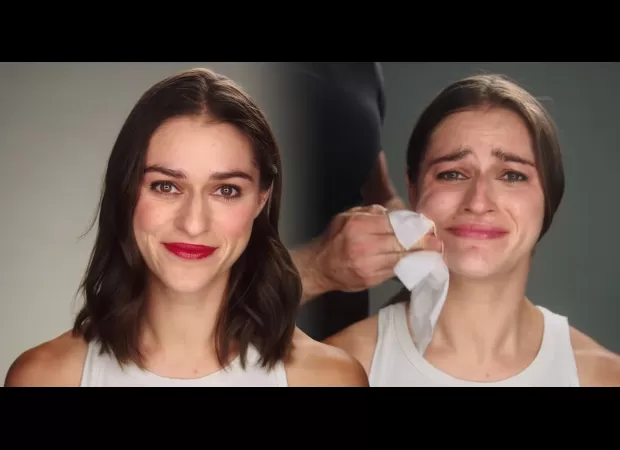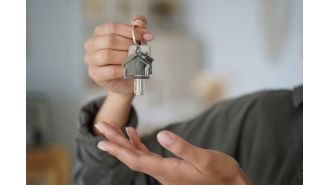He removed the lipstick without my consent, a form of abuse.
1 in 6 women report having their partner control their choice to wear makeup.

One in six women have reported having experienced their partner trying to control whether or not they wear makeup. Emma*, from Southern England, sadly knows this too well.
“He would say things like: ‘You’re so beautiful, you don’t need to wear makeup. You’re so natural’. But then if I tried to wear a red lipstick, he would say, ‘That’s really not for you’ and it would escalate to him holding me up against a wall and screaming in my face. He would then wipe it off my face. I saw all of it as my fault.”
Research conducted by Avon has found that this is an all too common experience, with nearly one in six women reporting they have had a partner control whether or not they wear makeup. The study polling 1,035 women in the UK, found that the occurrence of this gets higher the younger someone is: amongst 18 to 24 year olds, it rises to 22%.
Emma was in the relationship for eight years, and over that time her ex had the ‘power and control’. She says he would make out that he had her best interests at heart, and was looking out for her.
“He was all charm and charisma, so it took me a long time during the relationship, and after I left, to realise this was coercive control and physical abuse, and that I did not deserve it,” she says.
Hannah* also experienced similar controlling behaviour from her boyfriend.
“I used to love wearing red lipstick, it was very much ‘my thing’. It made me feel glamorous, and put together – even if I hadn’t made much of an effort. I loved how I looked and felt when I wore it.”
But on holiday, her boyfriend made an off-hand remark that he didn’t like the lipstick.
“At that point, we’d been together for nearly four years, and he casually said, that he’d never been a fan, and preferred when I didn’t wear it. By that point I was so used to him making digs, or ‘jokes’ at my expense, that I didn’t think much more of it.”
It wasn’t until Hannah told her friends, that she realised how sinister his remarks had been.
“I came back to work and told my colleagues and they were really shocked. I was taken aback when they asked if I was okay, and how it was an awful thing to say.”
Now, Hannah is single and can see things more clearly.
“I look back now and realise he spent a lot of our relationship trying to put me down, keeping my self-esteem at a place that he could manage. I’m pretty sure he knew exactly what he was doing when he made that comment. It said: ‘Don’t get too big for your boots, don’t get too cocky, I can bring you back down to Earth.’ Now, every time I put on some red lipstick, it’s a big two fingers up to him, and a reminder of how far I’ve come.”
Avon and global charity NO MORE have launched a new video, the ‘Reverse Makeup Tutorial’, which highlights the kind of abusive behaviour that can take place between partners when it comes to beauty. The words in the video are based on real experiences of survivors of domestic violence, and signposts to where victims, friends and families can get help.
Emma, who is now divorced and no longer in contact with her ex-partner, hopes that sharing her experience will help people realise how common coercive control is, be it in the form of controlling makeup, clothing, money, and other assets.
“For anyone reading this who wants to put on makeup today but isn’t allowed to, you are not alone,” she says. “I always thought I was – the shame and terror of what he would do to my family and friends kept me in that relationship. I love makeup, I feel it enhances the beauty in my soul. Now, if I’ve had my makeup done and there’s a lot on, I can feel a little weird – all these years later, there is still an echo of that abuse.”
Avon works with charities around the world to provide services to women and girls impacted by emotional, verbal and physical abuse. If you or someone you know is in need of help, please visit the Avon or NO MORE directory for a list of organisations who can help.






